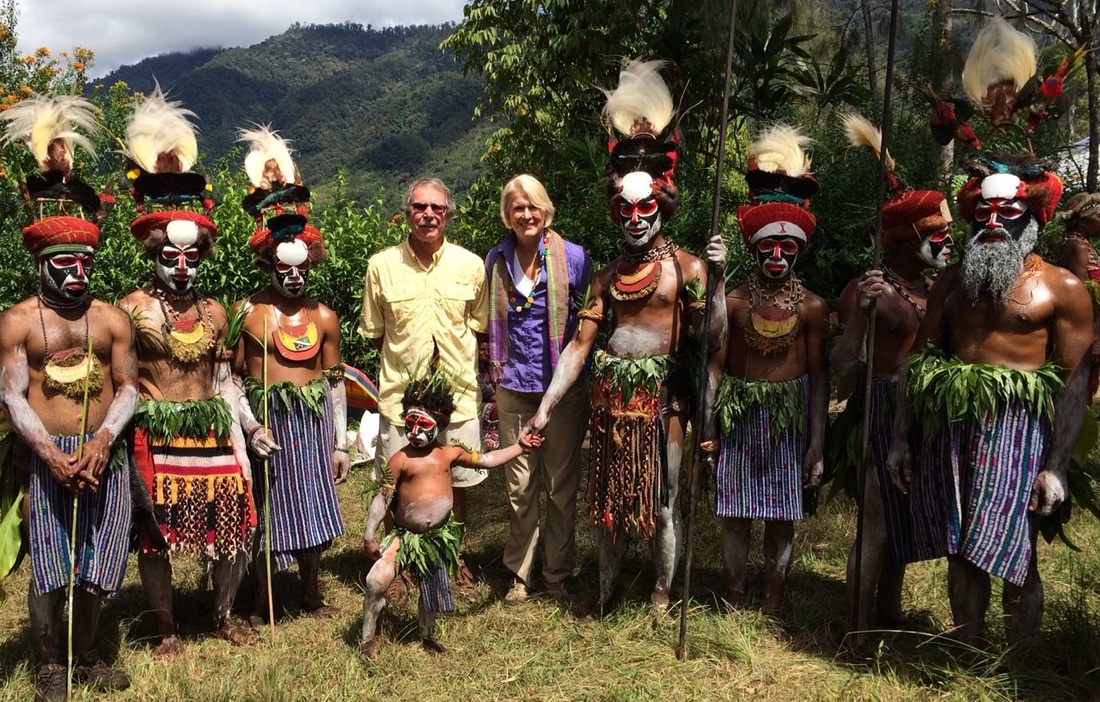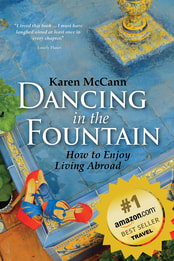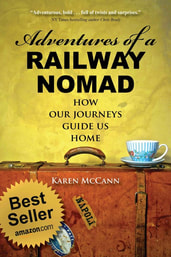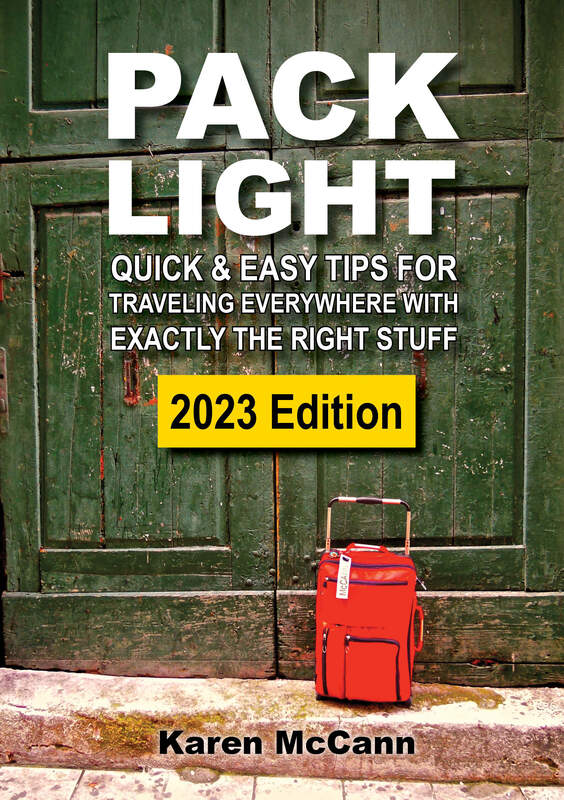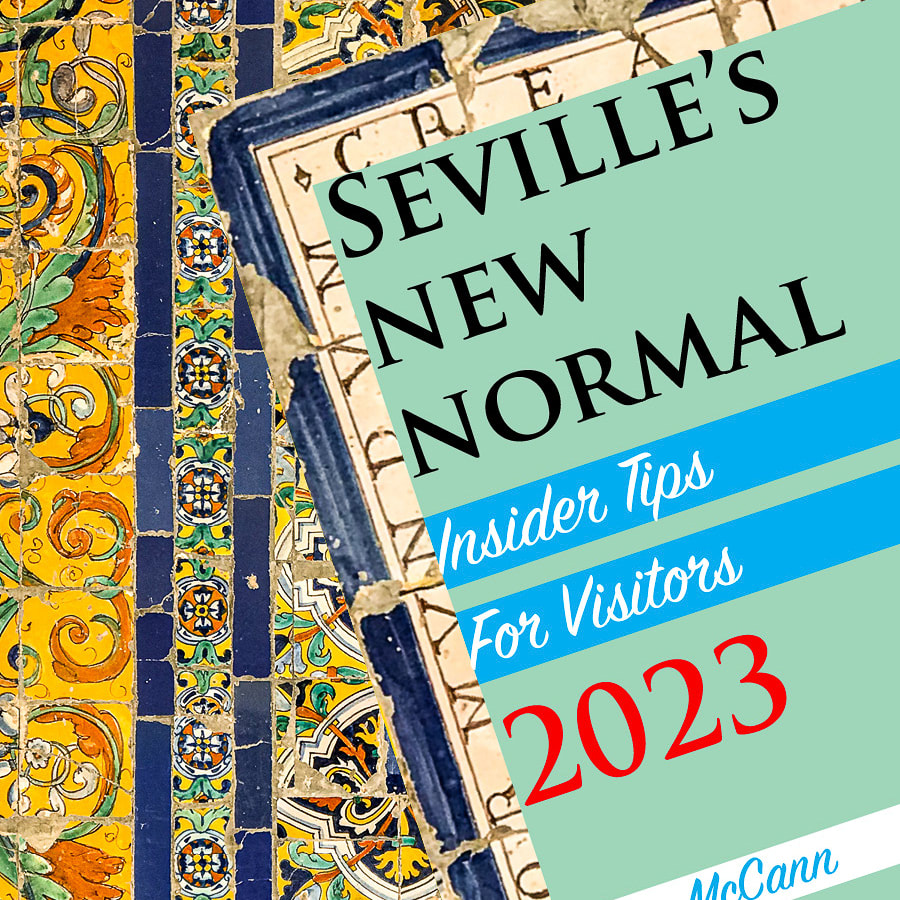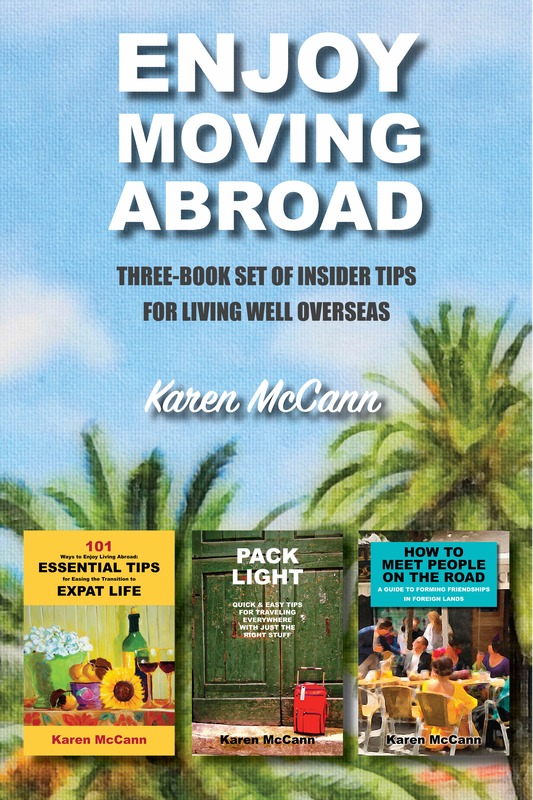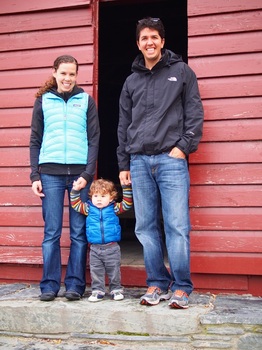 Lindsay, Everett, and Ross in New Zealand Lindsay, Everett, and Ross in New Zealand My husband is blessed with the ability to move from one country to another with the ease of a man strolling from room to room in his own home. I, on the other hand, used to suffer horribly from culture lag, feeling disoriented and off-kilter every time we made our twice-yearly trips from Seville to California. But lately I’ve noticed a curious thing: the transitions no longer bother me much. Having just returned to our home near San Francisco, I do feel a bit jet lagged, but I’m getting up every morning and sitting down cheerfully at my computer to get on with various writing projects, just as I do most mornings, whether I’m in my Seville apartment or on the road. This morning it suddenly struck me: I have become a digital nomad. I used to think that term only applied to people like our friends Lindsay and Ross, who have jobs they can do entirely via laptop and smartphone, allowing them to move every three to six months to a different part of the globe, just for the fun of it. Last week, Rich and I visited them and their toddler, Everett, in Cork, Ireland, where they’re spending the summer in a converted barn overlooking the sea. At the age of 16 months, Everett has already been on 27 plane flights and lived in five countries. “We want to be sure we’re raising our kids in an environment bigger than their own back yard,” Lindsay once told me. I think they’ve got that covered. 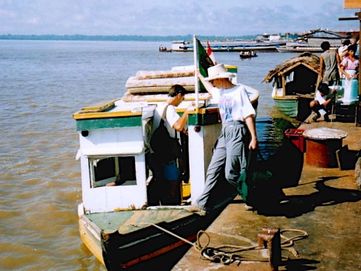 Boarding our boat at the headwaters of the Amazon River Boarding our boat at the headwaters of the Amazon River It occurred to me this morning that Rich and I are more like Lindsay and Ross than I realized. We pack up and move every three to four months, mostly going back and forth from Seville to San Francisco, but occasionally, as we did last year, traveling for extended periods in other countries. My work is entirely done on a laptop; I maintain this blog, am active on social media, and provide content for various online publications and travel websites. Right now I’m writing a new book (spoiler alert: it has to do with travel) and I’ve learned that I can move the project forward just as well at the breakfast table in an Irish B&B or a hostel in Bulgaria as I can at my desk at home.The more I think about it, the more I believe that we are all becoming digital nomads. Whether we’re at home or abroad, our phones and computers keep us connected to the larger world, as well as to our family, friends, work lives, and social circles. We can pursue our online interests anywhere and never need to feel out of touch. Of course, this has a downside as well. Most people growing up in the digital age will never experience the heady freedom of being completely unreachable. I remember years ago heading down the Amazon River on a wheezy old boat that made the African Queen look like a cruise ship, knowing that we would soon be in such a remote part of the Peruvian jungle that it would take days to get to a place where we could communicate with the outside world. For Rich, who had a high-stress corporate job at the time, that knowledge was sheer bliss. Nowadays, it’s much, much harder to get beyond the Internet’s vast reach. Last night we had dinner with our friends Kathryn and Peter, who recently spent time with a remote tribe in Papua New Guinea – and were able to email us this photo the same day it was taken. Whether you travel physically to other lands or enjoy exploring them from the comfort of an easy chair at home, you are part of the online world community. The Internet currently links several billion devices around the planet, keeping us connected, letting many of us work remotely, and making all of us citizens of the world.
4 Comments
 A very young Woody Harrelson tending bar in Cheers A very young Woody Harrelson tending bar in Cheers So the joke goes that at an Irish wedding reception, the master of ceremonies calls out, “Would all the married men please stand next to the one person who has made your life worth living?” And the bartender is nearly crushed to death. Where would we be without bar jokes? In fact, where would we be without bars? Since Roman times, people have been gathering in public houses for companionship as well as food and drink. In countries that have a pub culture – the UK, Ireland, and Spain, for instance – your local can be a home away from home, a place for casual encounters with friends, families, kids, dogs, and strangers who may soon become amigos. It’s where you go to watch the World Cup, election results, and the Oscars, so you can cheer or groan together. Despite what we’ve all seen on the old TV show Cheers, it’s unusual to find such bars in the USA. Maybe it’s our Puritan heritage or the lingering effects of Prohibition, but Americans tend to view bars as dens of iniquity, dark holes where you go to drown your sorrows with a jukebox playing old heartbreak songs in the background. You might attempt to pick up a random, inappropriate sexual partner there, but you’d never bring your family. Such places are what the nuns at school used to call “occasions of sin.” Whenever I begin a story, “I was having breakfast in this bar …” American friends tend to stare at me as if I’d just admitted to a long night of debauchery, when in fact I’m referring to sipping coffee at a sunny café-bar around the corner from my apartment in Seville. 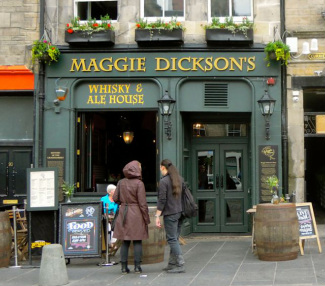 Luckily, pub culture is alive and well in many parts of the world, and most especially in the UK and Ireland, where Rich and I have spent the last two weeks. Our B&B hosts have kindly steered us to various delightful locals for a pint and some convivial company. For those who (like me) weren’t raised in a pub culture, it takes a while to work out how to make the most of these opportunities. We’ve learned that your best bet is to sit at the bar, where it’s easier to interact with the staff and fellow patrons. If you're not a drinker, order a meal, a snack, or just a mineral water. Start by talking to the bartender; comment on the weather, local sports, or the TV news, or ask where locals go for live music. You’re likely to get helpful suggestions, and the conversation may spread up and down the bar. 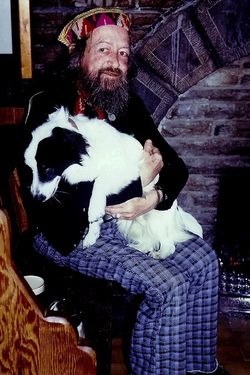 At Gus O'Connor's Pub At Gus O'Connor's Pub Sevillanos are highly adept at this, as they start hanging out in bars while they’re still drinking milk from a baby bottle. I once watched a woman change her baby and pass the soiled diaper to the waiter, who whisked it away without batting an eye. Talk about family-friendly! Babies and toddlers are often scooped up by the bar staff and carried off into the kitchen – something that in the US would instantly launch an Amber Alert and end in a lawsuit, but in Spain is considered simple hospitality. Dogs are generally welcome, too. A few years ago, when some dogs we knew had a litter of “oops” puppies, their humans brought them to a neighborhood bar, set them on a blanket on the floor, and by last round all the puppies had found new homes. Most bar visits don't (thank God!) end with you taking home a new puppy, but you may walk out with a lighter step – and a lighter heart – after a few hours of relaxing in congenial company. And isn't that worth the price of a round or two? Do you live in a place with a good local? Any tips for newcomers or travelers arriving at a pub for the first time? 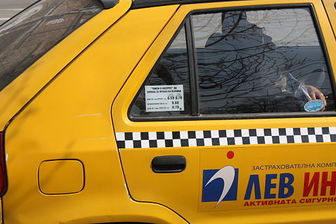 As you may have guessed, Rich and I are not timid travelers. But entering Bulgaria for the first time last fall, I admit I felt a little trepidation. Cheap action movies had imprinted vivid, if largely inaccurate, images on my brain, and I half expected everyone I met there – male or female – to turn out to be a ruthless assassin, the bodyguard of a criminal mastermind, or a shifty-eyed, tattooed informant with a life expectancy of under twenty minutes. Stepping off a train in Ruse, our first Bulgarian city, I walked warily into the station, eyeing everyone with suspicion, until a voice at my elbow shrieked, “Take my taxi.” I jumped and turned to see a grizzled little man wearing an expression that attempted, without conspicuous success, to look engaging and trustworthy. Nearly everywhere in the world, legitimate taxi drivers are obliged to wait outside of train stations and airports, and guidebooks urge you to avoid scam artists who accost foreign tourists inside transportation hubs. Even without such warnings, we had only to look at this fellow to know we wanted no part of whatever he was offering. He definitely fit the shifty-eyed, tattooed profile, and I certainly wasn’t going to spend twenty minutes with him to see if he exceeded the average life expectancy of his kind.  We tried to shake him off, but he followed us outside to the cab stand, yelling, “My taxi! You go my taxi! Not that taxi! He is no even Bulgarian! That man is Romanian! You no want him!” That was a good enough recommendation for us. Rich and I jumped into the Romanian’s taxi, told him the name of our hotel, and sped away. It was the only time in the entire trip that we skipped the ritual coffee that we have upon arrival in any new town, and halfway to the hotel, we suddenly realized what we’d done. Our ritual coffee is, of course, less about coffee than about catching our breath, making sure we know where we’re going and how to get there, and – let me underscore this point – figuring out where there’s a cash machine so we can get enough local currency for our immediate needs. We had not obtained any Bulgarian lev and were now in the awkward position of hurtling toward our destination without the ability to pay our fare. Later, after we’d overpaid and heavily tipped our cab driver in Romanian currency, which he was kind enough to accept, I thought about the small rituals that Rich and I have developed in our travels, and how they help us stay on an even keel in tumultuous circumstances. For instance, we always carry with us a small cloth frame containing the silliest photos taken of each of us at our wedding. Over the years, it has become festooned with various talismans, such as a string given us by a Buddhist monk in Bhutan and various crosses and medals from sacred shrines. We don’t really believe it brings us luck – but we don’t leave home without it. 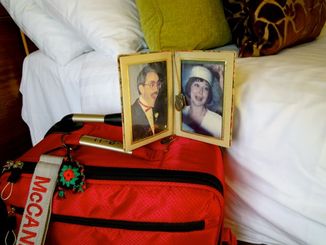 We took another ritual from Silver Streak, an old train film with Gene Wilder and Richard Pryor. At the start, the conductor leans out, waves, and says, “Goodbye, LA.” Two hours later, after murder, romance, crackling one-liners, and (spoiler alert!) the train crashing into the wall of the station, the conductor leans out of the train again, saying calmly, “Hello, Chicago.” We loved his insouciance and now salute each city upon arrival and departure. Just saying “Goodbye, Bucharest!” and “Hello, Sofia!” puts our travel issues – crying babies, appalling bathrooms, glowering customs officials – into context. Hey, at least no one was murdered and/or thrown off the train. These small rituals have become very comforting to us on the road. By the time we’ve greeted a new place, sipped our coffee at the station, and set our silly photos in a place of honor in our new digs, we know that wherever we are is home. 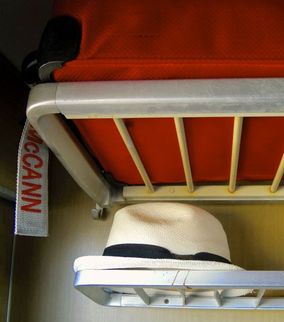 Rich's birthday is this Friday, and he wants to celebrate on the rails. So we're departing soon for a train trip through England, Scotland and Ireland. I won't be posting much this week, but if any of you have suggestions for things to do in York, Edinburgh, Glasgow or Cork, I'd love to hear from you! |
This blog is a promotion-free zone.
As my regular readers know, I never get free or discounted goods or services for mentioning anything on this blog (or anywhere else). I only write about things I find interesting and/or useful. I'm an American travel writer living in California and Seville, Spain. I travel the world seeking eccentric people, quirky places, and outrageously delicious food so I can have the fun of writing about them here.
My current project is OUT TO LUNCH IN SAN FRANCISCO. Don't miss out! SIGN UP HERE to be notified when I publish new posts. Planning a trip?
Use the search box below to find out about other places I've written about. Winner of the 2023 Firebird Book Award for Travel
#1 Amazon Bestseller in Tourist Destinations, Travel Tips, Gastronomy Essays, and Senior Travel
BLOG ARCHIVES
July 2024
CATEGORIES
All
|
